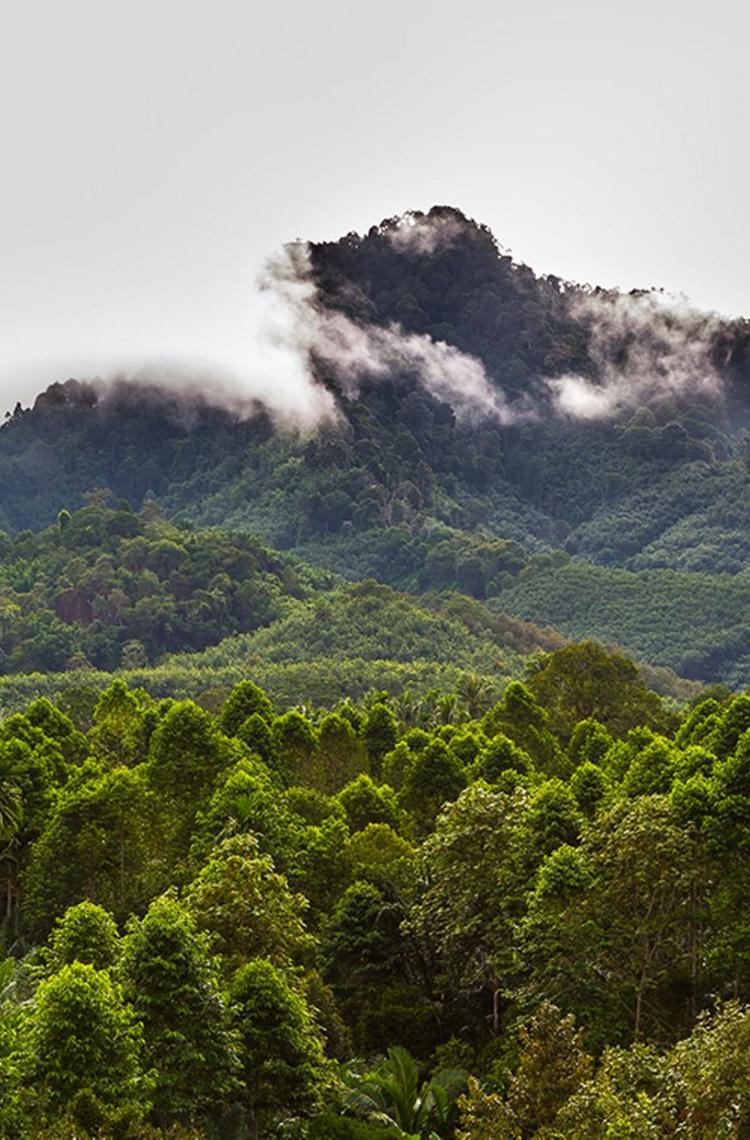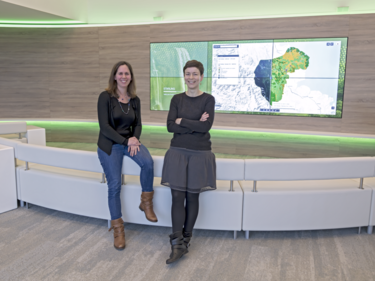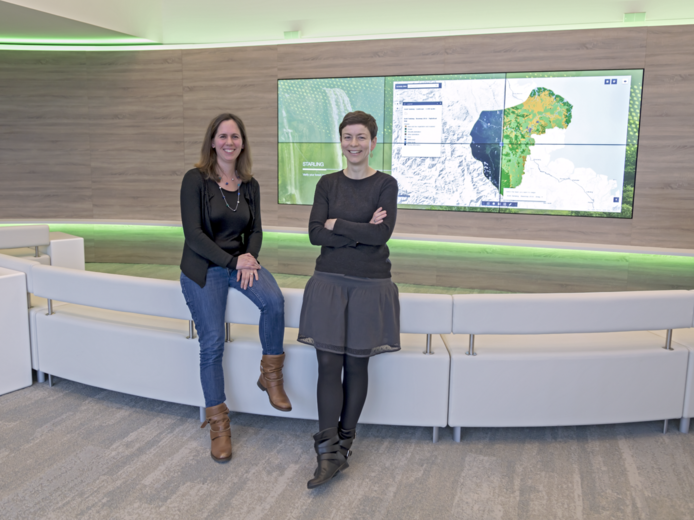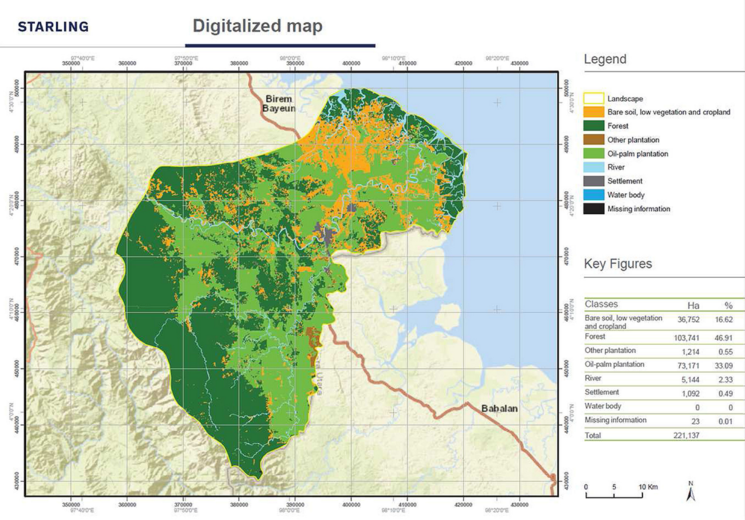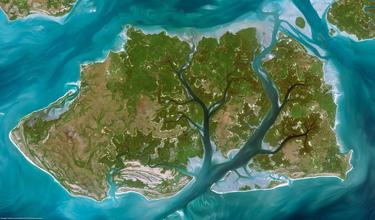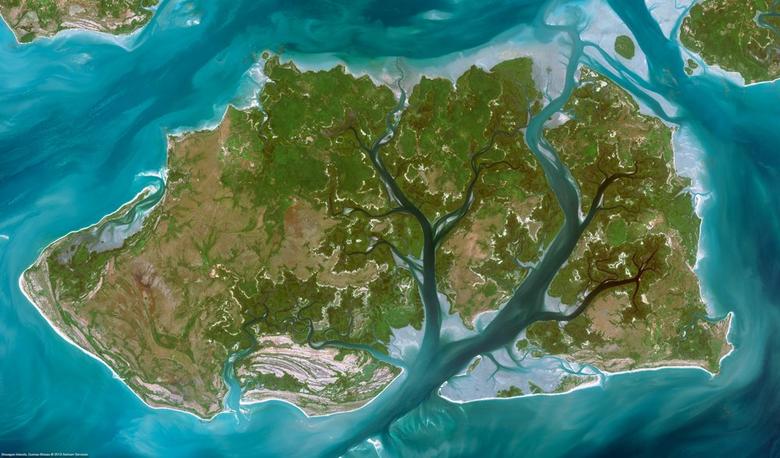Airbus demonstrates its commitment to sustainable development by teaming up with responsible companies to monitor the palm oil supply chain for businesses like Nestlé and Ferrero
Charlotte Mathian and Géraldine Florsch are helping to make the world a better place. The two engineers work on Starling, an Airbus service that, since 2017, has enabled companies to support no deforestation.
Starling forms part of Airbus’ commitment to facilitate sustainability and compliance throughout the supply chain, either through customer support or its own partnerships with responsible suppliers. “Many companies have pledged to put an end to deforestation, and Starling helps them to determine whether they are achieving their objectives,” says Mathian, a specialist in Earth observation image processing.
Palm oil and global warming
The European Parliament’s resolution of 4 April 2017 noted that 40% of global deforestation is caused by clearing vegetation to make way for palm oil plantations. The activity is particularly common in Indonesia and Malaysia where palm oil is produced for use in the manufacture of chocolates, industrial bakery products, cosmetics and biofuels.
The resolution pointed out that a monitoring service was required and called for “concrete regulatory measures” to ensure that, in the future, no supply chains linked to the EU were connected to deforestation.
Helping companies with their ‘No Deforestation’ commitment, Starling – which has been developed jointly by Airbus, non-profit organisation The Forest Trust (TFT) and Netherlands-based company SarVision – is designed to provide that much-needed monitoring service.
Tropical deforestation accounts for about 10 percent of the world’s global warming emissions.
An eye deep in the forest
Starling develops products derived from detailed, 1.5m-resolution images captured by Airbus’ SPOT 6 and 7 satellites. Since palm oil plantations can sometimes be concealed by cloud cover, Starling overcomes this obstacle by combining satellite imagery with radar data or other free optical data from Landsat and Sentinel 2.
Among the first companies to use the system are agri-food giants Nestlé and Ferrero. “Nestlé is committed to zero deforestation by 2020 for all of its supply chain,” said during the launch of Starling Pierre-Alexandre Teulié, Head of Corporate Communications, Public Affairs, e-Business and CSR at Nestlé France.
“Today, even if 91% of our palm oil supply could be traced back to the mill, only 57% meets our group’s sustainability commitments. Starling will allow real-time monitoring of our impact on forest preservation,” said Teulié.
Economic growth with responsible production
Other companies are also interested in using Starling. “We’ve held meetings with around 100 potential customers, as well as presenting the service to many companies in Indonesia,” says Mathian. “Thanks to our technology and experience, we can acquire images and process them very quickly,” adds Florsch. “This allows customers to improve reactivity thanks to a rapid delivery of maps showing the extent of the deforested areas.”
One of the targets under Goal 8 of the UN Sustainable Development Goalsis to “Improve progressively, through 2030, global resource efficiency in consumption and production and endeavour to decouple economic growth from environmental degradation.” By working together, just as Airbus is with Nestlé, Ferrero, TFT, SarVision and Solvay, progress on this goal becomes a reality.
Learn more about Airbus' approach to minimise environmental impact
For more information on Starling service, visit the Starling website
Airbus’ sustainability approach across its supply chain
Food companies aren’t the only businesses to step up responsibility for their supply chains. With more than 12,000 suppliers in around 100 countries, Airbus must also consider its global impact.
In doing so, the company is committed to preventing adverse impacts of its activities, while it also encourages suppliers to improve their social and environmental performance.
This approach is reflected in the new Airbus’ Suppliers Code of Conduct, which covers topics such as environment, health and safety, anti corruption as well as human and labour rights.
It is also visible in the Modern Slavery Statement , which captures planned actions to prevent modern slavery and human trafficking in the company’s own business and supply chains.
Learn more about how Airbus operates responsibly
